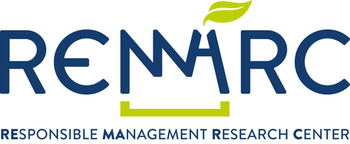THIS EVENT HAS BEEN CANCELLED DUE TO COVID 19. MORE NEWS ABOUT THIS INITIATIVE WILL FOLLOW!
REMARC is at Eu-SPRI Conference “New Horizons for Science Technology and Innovation Policies” held in
Utrecht, 3-5 June 2020 and hosted by Copernicus Institute of Sustainable Development, Utrecht University
We organize the following section: “Are intellectual property rights working for society?”
Intellectual property rights (IPRs) are the primary institutions when it comes to the production and diffusion of intangibles. While clearly ensuring private returns to the owners, it is much less clear whether they fulfill the promise of social returns to other actors and to society enlarge. Over the last years, IPR regimes have tended to allow both broader and stronger rights, prompting questions about the effectiveness of these institutions at balancing the inherent tradeoffs between private and public benefits. The monopoly rents generated by IPRs may restrict access to knowledge and innovation that can change the lives of many. For instance, IPRs may hamper access to HIV and other life-saving treatments, prevent poor farmers from using seeds once they are patented or legitimize cultural appropriation of heritage of indigenous communities.
These and similar issues pose a number of policy challenges, which need to be addressed to ensure that IPR institutions deliver the societal goals that they are designed for. Such a discussion can be informed by collecting systematic evidence on practices of use of IPRs across industries, markets and nations, to highlight emerging tensions. Research in this domain is scant and largely confined to law scholarship, but economists, innovation and transition scholars should also engage and use the insights when shaping economic and innovation policy.
The aim of this special session is to welcome contributions on the following topics of interest:
- The foundation of IPRs: do IPRs work as genuine property rights or are they just monopoly rents restricting access to knowledge and inventive activities?
- IPRs and sustainability transitions: do IPR-based governance models help or hinder diffusion of sustainable innovation?
- IPR protection on issues such as access to knowledge outputs, to data, to health treatment, to learn, to equipment and protection of the right to education, health, and democratic access to cultural and scientific outputs;
- IPRs and dynamic competition: which factors affect the balance between IPRs as barriers to entry and IPRs as drivers of competition?
- Biases in access to IPRs: assessing the Global North, large corporation, gender and other biases.
- Overlapping IPRs: how problematic is it when actors strategically combine IPRs?
Theoretical, empirical (both quantitative and case-based), and policy-oriented papers alike are welcomed. We strive at collecting enough relevant high-quality contributions to build the case for a special issue proposal in Research Policy.
Organizers
Prof. Carolina Castaldi, Utrecht University
Prof. Elisa Giuliani, University of Pisa
Prof. Alessandro Nuvolari, Sant’Anna School of Advanced Studies



